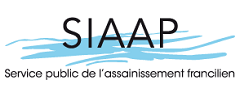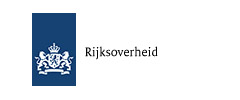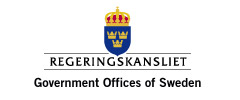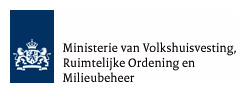Rotterdam Convention moving backwards, say civil society groups
Press release on COP7
15.05.2015 |

PRESS RELEASE: Geneva, May 16, 2015
For immediate release
Rotterdam Convention moving backwards, say civil society groups
Four countries highjack international agreement, intended to protect human health and environment.
Regrettably, it comes as no surprise that the seventh Conference of the Parties of the Rotterdam Convention (COP7) again failed to list chrysotile asbestos on Annex III of the Convention. During the course of week, civil society groups attending COP7 have expressed grave alarm that once more the Convention has been hijacked by the asbestos industry, in a determined effort to prevent the environmental and health protections of the Convention from being implemented.
Download the press release (in pdf) here.
For the fifth time, a handful of countries, allied to the asbestos industry have refused to allow chrysotile asbestos to be added to the Convention’s list of hazardous substances, even though the Convention’s Expert Scientific Committee has repeatedly recommended that it be listed, and even though it has been recognized that the listing of chrysotile asbestos would meet all the criteria of the Convention. Industry and government propagandists at the meeting advanced spurious and discredited arguments alleging that there was no evidence that chrysotile asbestos endangered human health. These arguments were graphically dismantled by the testimony of an asbestosis sufferer from Mumbai who had been occupationally exposed to chrysotile asbestos. He urged the convention to finally face up to its responsibilities and take appropriate action on chrysotile.
At an asbestos side event organized by civil society groups on May 13, 2015 a film from the World Health Organization was premiered entitled: “Chrysotile Asbestos – Voices from South-East Asia.” The testimony of asbestos-injured victims from Mumbai made a big impact on the participants.[1]
With their obstruction of the listing of chrysotile asbestos, Russia, Kazakhstan, Kyrgyzstan, Zimbabwe revealed their determination to bury the hazards of chrysotile asbestos, and thwart the objective of the Rotterdam Convention: the requirement that countries practice responsible trade by obtaining prior informed consent before they export hazardous substances to another country. One of the arguments advanced by countries opposed to listing is that they would incur extra costs as a result. This argument, however is simplistic; it fails to recognise the enormous health and economic costs that arise due to the use of chrysotile asbestos – already reckoned in hundreds of billions of dollars. While industry takes its profits, enormous costs are put on the shoulders of taxpayers and hundreds of thousands of sick victims.
Alexandra Caterbow, WECF Chemical Senior Policy Advisor and co-coordinator of the Rotterdam Convention Alliance (ROCA), pointed out in her final statement to the plenary session: “For the fifth time chrysotile asbestos was not listed in Annex III. Each time the Convention fails to list chrysotile asbestos, thousands more tons will be traded without countries prior informed consent. Every year you do not list, thousands and thousands of people will be exposed to this substance, which means their death sentence1. It is essential that a way is found to make the Convention work. We as NGOs are ready to contribute as much as we can to achieve the Convention´s objective: to protect health and the environment.”
During plenary discussions, numerous countries said that they were thinking about banning chrysotile asbestos now, since without listing, the Rotterdam Convention would not allow them to access their right of prior informed consent and protect their borders.
In addition to ROCA, other civil society organisations, such as trade unions and NGOs, who have been working for years on the listing of chrysotile asbestos on the Rotterdam Convention, staged events and meetings around the conference area, in an attempt to counter misinformation originating from the industry propaganda outlets.
CSO groups globally and especially in Asian-Pacific countries, seek new strategies for putting asbestos victim’s voice into action in targeted countries like India, Indonesia, and Vietnam.
Notes:
[1] WHO. “Chrysotile Asbestos – Voices from South-East Asia.”
https://www.youtube.com/watch?v=OTiF3xGXFTI and http://www.searo.who.int/entity/occupational_health/asbestos/en/
For more information:
Kathleen Ruff, Right on Canada, kruff@bulkley.net
Alexandra Caterbow, WECF, alexandra.caterbow@wecf.eu, +49 179 5244994
Laurie Kazan-Allen, International Ban Asbestos Secretariat, lka@btinternet.com
Sanjiv Pandita, ABAN sanjiv@amrc.org.hk
Tran Tuan, Vn-BAN, trantuan@rtccd.org.vn
Related News
Workshops on asbestos in Kazakhstan, Kyrgyzstan, FYR Macedonia and Russia
Asbestos is a very serious but unfortunately neglected threat, especially in Eastern Europe and Central Asia. Therefore WHO European Region decided to finance workshops on this issue in four Eastern European and Central Asian countries
23.10.2015
Rotterdam Convention COP 7 (May 13th 2015). ROCA /WECF Side Event on “Chrysotile Asbestos and the question: Who pays the Bill?”
More than 70 people attended a successful, informative and emotional Side Event at COP 7 in Geneva Testimonials and Dialogue
14.05.2015



































